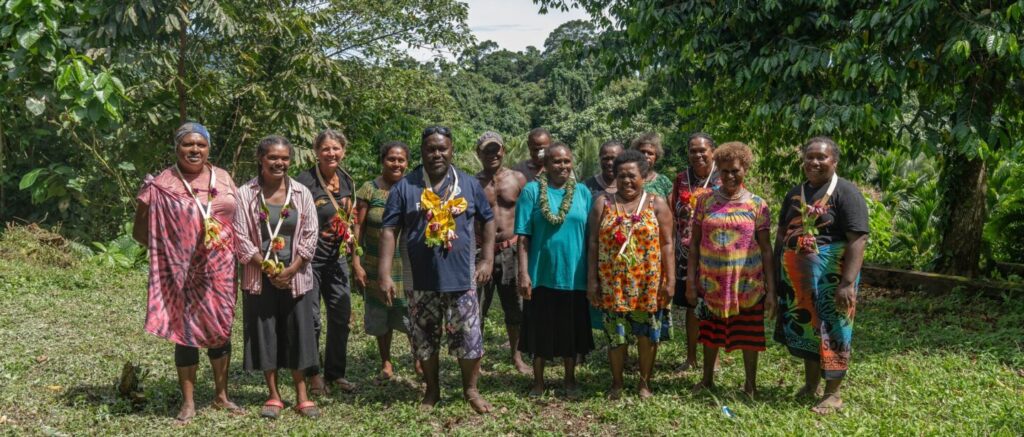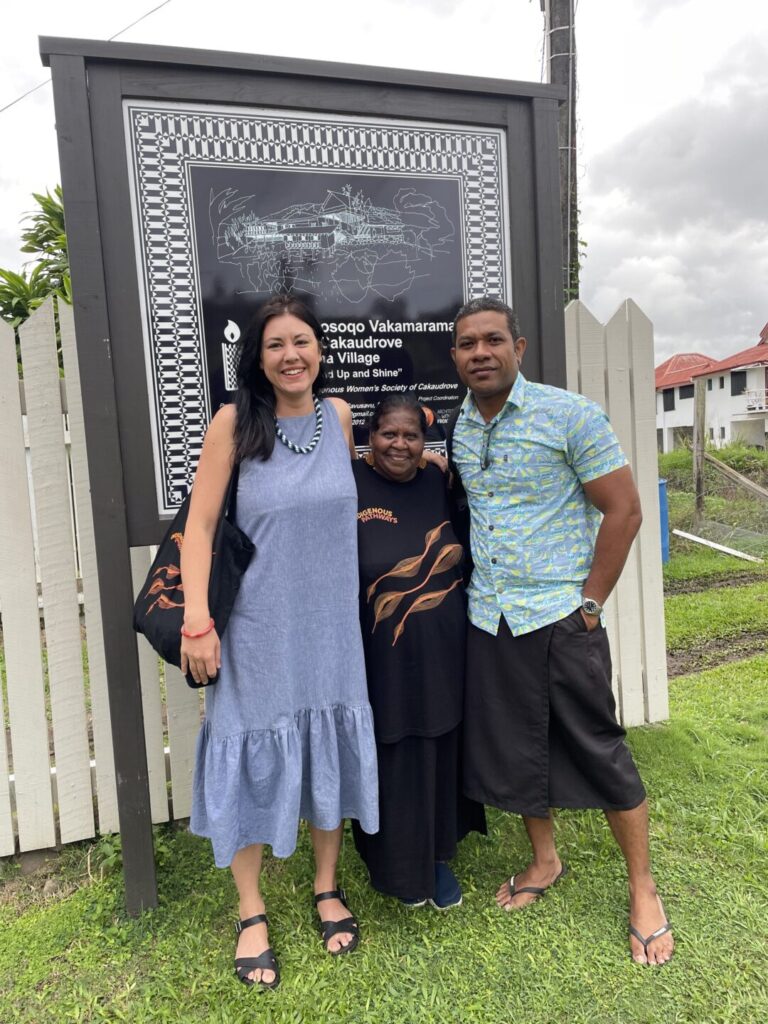
Think Piece Author: Alice Tamang, Indigenous Programs Manager at the Australian Volunteers Program
Indigenous communities around the world have long navigated crisis, colonisation, and change through deep relationships, communal responsibility and care for our environment. When confronted with today’s intersecting global challenges, we need models of cooperation that are effective, relational and grounded in reciprocity.
Indigenous knowledge systems offer this, yet our perspectives and solutions often remain marginalised within international development and volunteering. Genuine engagement of civil society has long been recognised as a key ingredient for development. Recognising this, international development and volunteering has evolved to recognise the importance of gender, disability and LGBTIQA+ inclusion to achieve development outcomes. But what about Indigenous perspectives?
Approaches Grounded in Connection
Our approaches should not be viewed as peripheral, but rather as essential for strengthening societies in challenging times. Over tens of thousands of years, our communities have preserved and passed down wisdom, shaping how we navigate challenges. In Australia, Indigenous knowledge systems are deeply tied to kinship and community responsibility. Our wellbeing is not individual—it is part of interconnected systems of land, water, animals and people. All living things, and the things that support us, must be in balance. Our oral histories, art, and cultural practices are evidence-based systems that inform how we live and lead. Yet, this evidence is frequently dismissed by those in power because it does not easily fit within Western or academic institutional frames.
In the face of challenging times, Indigenous communities have continually drawn on these systems to sustain life, preserve culture, and protect each other. These strengths should inform international volunteering efforts to advance all development objectives.
Exchange as a Pathway Forward
It is rare for transformative change to come from top-down interventions or to be driven externally. True change comes from local people working in ways that are culturally safe and community driven. Indigenous-led approaches do not just reach marginalised groups, they are built from within. This makes them sustainable and with deep potential for transformative change.
A clear way forward is to support Indigenous-to-Indigenous direct engagement. This offers global cooperation in reimagined ways, led by those who have long practised development in ways that mainstream systems are only just beginning to value.
A powerful example of this work is the Department of Foreign Affairs and Trade (DFAT)-funded Australian Volunteers Program’s (AVP) 2025 Indigenous Conservation Knowledge Exchange, which connected partners from the Solomon Islands Rangers Association with the Torres Strait Regional Authority, through two-way reciprocal exchange. Indigenous staff from each organisation volunteered, with the first exchange taking place in February 2025 in Solomon Islands, and the second in August, in the Torres Strait Islands (Australia).
This Indigenous-led initiative, delivered through AVP’s Indigenous Pathways program, brought together environmental rangers and community leaders to share traditional ecological knowledge, strengthen custodianship of land and sea, and explore community-led approaches to conservation and advocacy. It created space for deep listening, cross-cultural learning, and relationship-building between Indigenous peoples. Together, navigating shared environmental and social challenges, particularly the growing impacts of climate change.
What made this exchange so powerful was both the knowledge and the way it was shared: through cultural protocol, mutual respect, and relational learning. It is a strong example of how Indigenous-to-Indigenous volunteering can demonstrate more reciprocal approaches to international volunteering. It balanced power by affirming each other’s strengths and deepening cross-cultural solidarity. It also created space for leadership from within communities and offers a model for how international volunteering can operate with greater cultural safety and relevance.
Structural Change
But if we want to see real impact, these models must move beyond isolated examples. We need national-level strategies that embed Indigenous engagement across international programs and are led by Indigenous people. Countries must recognise Indigenous people as more than just domestic stakeholders and elevate Indigenous perspectives as vital to foreign policy and international cooperation – not just culturally enriching add-ons, but strategically important. This means investment, policy development, and structural reform that positions Indigenous people to lead. DFAT has taken initial steps through its Indigenous Diplomacy Agenda and is now developing a First Nations approach to Foreign Policy. While work is in early stages, it is a promising start and creates a platform for more Indigenous-led approaches to international engagement.
Despite commitments to localisation and decolonisation, structural inequalities persist and many volunteering and development initiatives reinforce colonial power dynamics. Indigenous-led models disrupt this. They challenge extractive approaches and instead centre mutual accountability, long-term relationships, and culturally grounded leadership.
As an Indigenous professional working in international development, I want to see change. I’ve experienced how powerful Indigenous-led approaches can be, within Australia, and across the Pacific and South Asia. These models are not only welcomed by our international partners but often embraced with enthusiasm.
What we need now is structural change – policies, systems and funding mechanisms that not only make space for Indigenous voices but centre them. This means recognising the legitimacy of Indigenous knowledge, resourcing Indigenous leadership, and creating pathways for Indigenous people, communities and organisations to design and deliver international initiatives.

Alice Tamang is a proud Dharug woman (Indigenous Australian) with extensive experience in Australia and internationally, spanning community development, program design, technical advisory, and operations management. She is committed to amplifying Indigenous leadership, dismantling structural barriers, and celebrating the skills of First Nations Australians. Alice has led the creation of First Nations frameworks for development programs and advised on Australian Government-funded initiatives. Internationally, she co-designed the Indigenous Pathways Program at the Australian Volunteers Program and delivered Indigenous knowledge exchange projects in Fiji, Solomon Islands, Nepal, and Bangladesh. Combining cultural safety, locally led approaches, and cross-cultural competence, she champions First Nations voices and builds bridges across cultures.
Forum is a global network of organisations working through volunteers to achieve sustainable development
Global Volunteering Forum
©2025 IVCO. All rights reserved. Web Design by Britt Novakowski